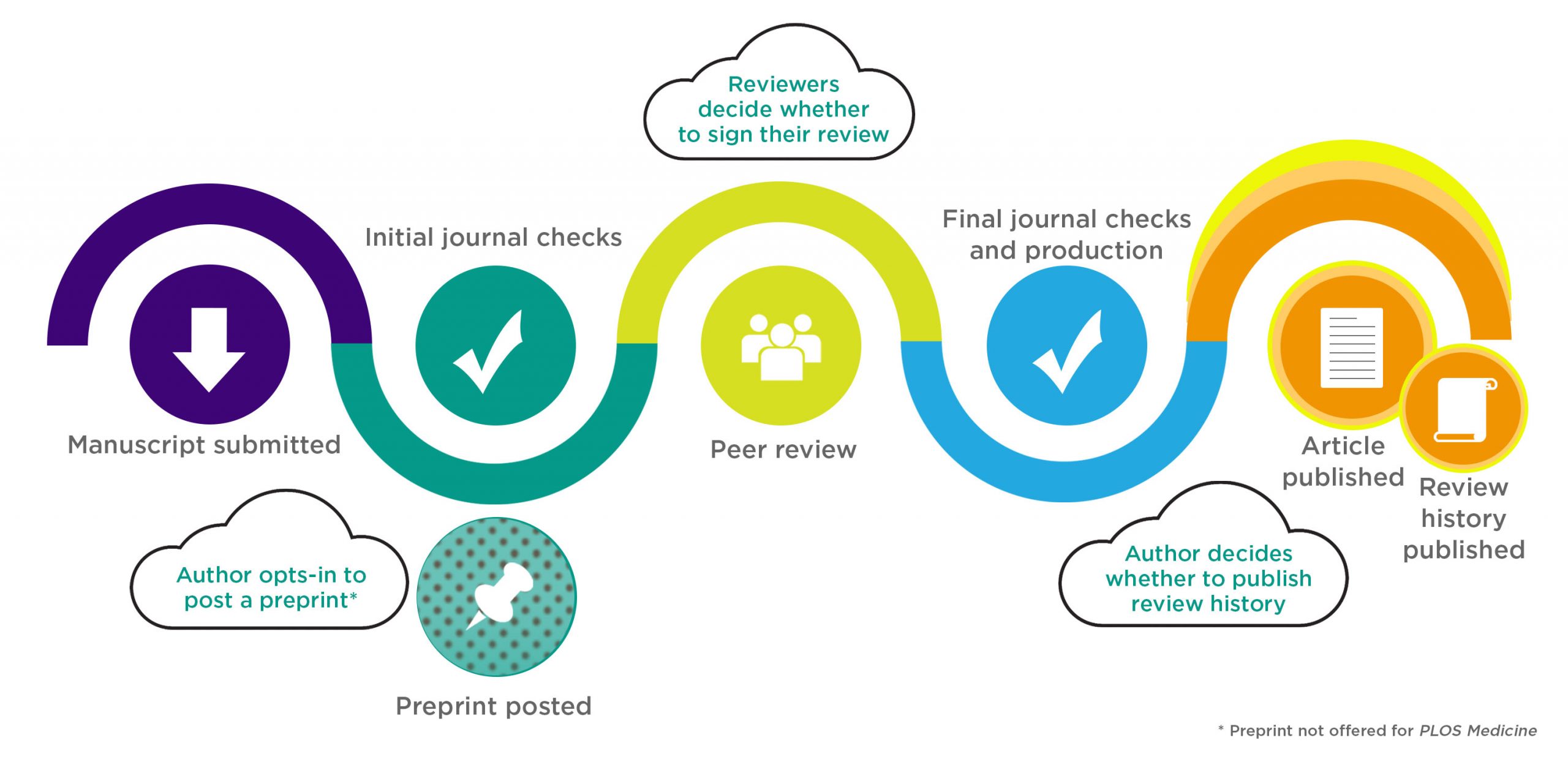Note: PLOS issued the following press release on Tuesday, April 2nd. Brussels, Belgium, and San Francisco, United States – The Public Library…
PLOS Journals Now OPEN for Published Peer Review
Starting today, ALL PLOS journals will offer authors the option to publish their peer review history alongside their accepted manuscript! We’ve been excited to make this announcement, and make major strides towards a more open publication process, since last fall when we signed ASAPbio’s open letter committing to transparent peer review options.
What will it look like?
Our philosophy going into this project has been to open up the peer review process in a way that gives authors and reviewers more choices about how they publish and claim credit for their work.
As before, our peer review process defaults to single-blind, although reviewers have the option to sign their names to their reviews if they wish. What we’ve added to our process is an option at acceptance for authors to decide whether to publish the full peer review history alongside their work. This package includes the editor’s full decision letter, complete with reviewer comments and authors’ responses for each revision of the manuscript. Peer review history will have its own DOI enabling reviewers to take credit and earn citations for their contributions. If the reviewers have chosen to sign their reviews, their name will also appear on the published reviews but they can also chose to remain anonymous.
All manuscripts submitted after May 22, 2019 will be eligible for this option if accepted at a PLOS Journal. Here’s a look at the variations of open our opt-in model provides:
A major step for PLOS, and scholarly communication
The peer review history reveals crucial perspectives and decisions that supply additional context for readers and researchers. Because of the potential benefits, we’re making this option available now on all seven PLOS journals.
Other journals that have experimented with published peer review models have shown that the quality of feedback provided is at least as good as other models – we think it has the potential to be even better through increased accountability and transparency. We’re building off the foundations and lessons learned by these examples and are confident our model can offer authors more choices to make their research and the publishing process open, and showcase the rigorous review of their work.
Through the scale of our publishing output across all seven PLOS journals, we see this as an opportunity to make a significant change in the scholarly communication landscape and lay the foundation for a more open view of the manuscript handling process from start to finish.
Open beyond Open Access
While the benefits of transparency are numerous, we see published peer review as a crucial first step towards solving two fundamental problems: reviewer credit and public understanding of the peer review process. So far, Open Access has made it possible for research to reach a global community of readers but we have not yet demonstrated the work that goes on behind the scenes to validate scientific claims.
Publishing peer review history is a means of enriching the scientific record by giving context to evaluation and publication decisions. We hope this is also an important step toward elevating peer reviews to scholarly outputs in their own right that reviewers can take credit for.
In conjunction with the work it describes, peer review history can also be a source of material for educating students and the general public about peer review. Our content is also machine readable, paving the way for deeper analysis and discussion by the community.
Looking ahead
We’ve developed this option in consultation with our editors who are dedicated to improving our journals, and we also committed to reporting back our findings. As we learn more about how published peer review shapes author and reviewer choices, and reader experience, we’ll continue to update you on what we find.

